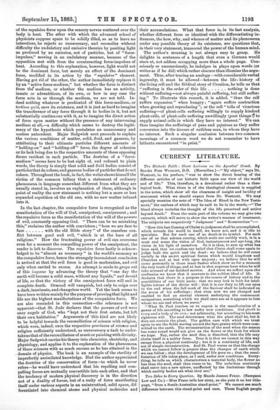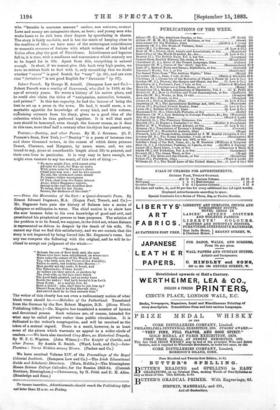Two Sides to Every Question. By Mande Jeanne Franc. (Sampson
Low and Co.)—Miss Franc tells her story, as she puts it on her title- page, " from a South-Australian stand-point." We cannot see much
difference between this stand-point and ours. These English people
who "breathe in converse seasons" caelunt, non animum, mutant. Love and money are antagonists there, as here ; and young men who make haste to be rich barn their fingers by speculating in shares. The story is fairly readable, and it has the merit of keeping close to the realities of life ; we have none of the extravagant coincidences or romantic reverses of fortune with which writers of this kind of fiction often play the part of Providence. Inheritances and legacies fall in, it is true, with a readiness and convenience which scarcely are to be hoped for in life. Apart from this, everything is natural enough. In short, if we cannot give this book very high praise, we have no serious fault to find with it, only remarking that we doubt whether "uncou' " is good Scotch for "very" (p. 48), and are sure that "fortuitous " is not good English for " fortunate " (p. 67).



































 Previous page
Previous page